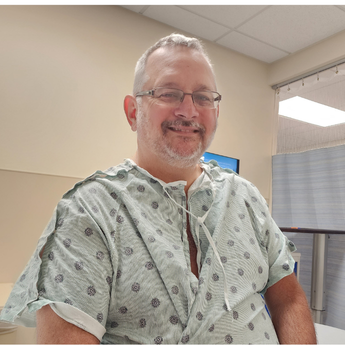As we look ahead to 2025, we reflect on the incredible strides made in breast cancer awareness, research, and support. The past year brought new insights, inspiring stories, and innovative developments in breast cancer research. To kick off the new year, we've curated a list of blog posts that have generated the greatest interest in our community over the past year. These posts cover a range of topics—from mental health perspectives to pain after surgery, to the decision to stop treatment—offering hope, education, and encouragement to those affected by breast cancer. Here, we share the top 10 most read blog posts of 2024:
10. For Lorraine's Sake
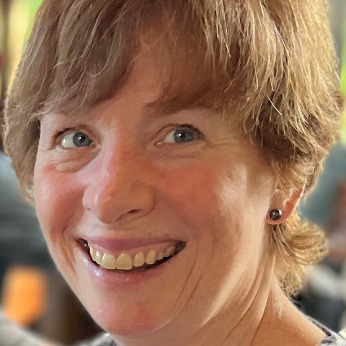 Our mother had breast cancer in her 50s, which increased her two daughters’ risk of also developing breast cancer. In 2005, my sister, Lorraine Smith, who was 41, enrolled in an early detection program and had her first mammogram. At the time, mammography reports were not disclosed to the patients, and they were not told anything about the density of their breasts, and what it means.
Our mother had breast cancer in her 50s, which increased her two daughters’ risk of also developing breast cancer. In 2005, my sister, Lorraine Smith, who was 41, enrolled in an early detection program and had her first mammogram. At the time, mammography reports were not disclosed to the patients, and they were not told anything about the density of their breasts, and what it means.
9. Anxiety, PTSD and Depression: How to manage the emotional side of breast cancer
 For me, hearing these words felt like I was falling into a deep pit that I had no way of crawling out of. My diagnosis wasn’t something I could negotiate or talk my way out of either—two things I am fairly good at. This lack of control and inability to change my situation hit me hard. I had to accept that cancer was my new reality, and this filled me with fear. The feelings that followed oscillated between depression and anxiety—and they weren’t fleeting.
For me, hearing these words felt like I was falling into a deep pit that I had no way of crawling out of. My diagnosis wasn’t something I could negotiate or talk my way out of either—two things I am fairly good at. This lack of control and inability to change my situation hit me hard. I had to accept that cancer was my new reality, and this filled me with fear. The feelings that followed oscillated between depression and anxiety—and they weren’t fleeting.
8. Tears and Laughter – My MBC Story, Part 1
 I was unprepared for the results received on a brilliant April afternoon. Looking back, I may have wondered at being the last patient in the waiting room, or the offer of a cup of tea as I was shown a seat. The lump was an invasive ductal carcinoma – I had breast cancer.
I was unprepared for the results received on a brilliant April afternoon. Looking back, I may have wondered at being the last patient in the waiting room, or the offer of a cup of tea as I was shown a seat. The lump was an invasive ductal carcinoma – I had breast cancer.
7. The Invisible Stage of Breast Cancer
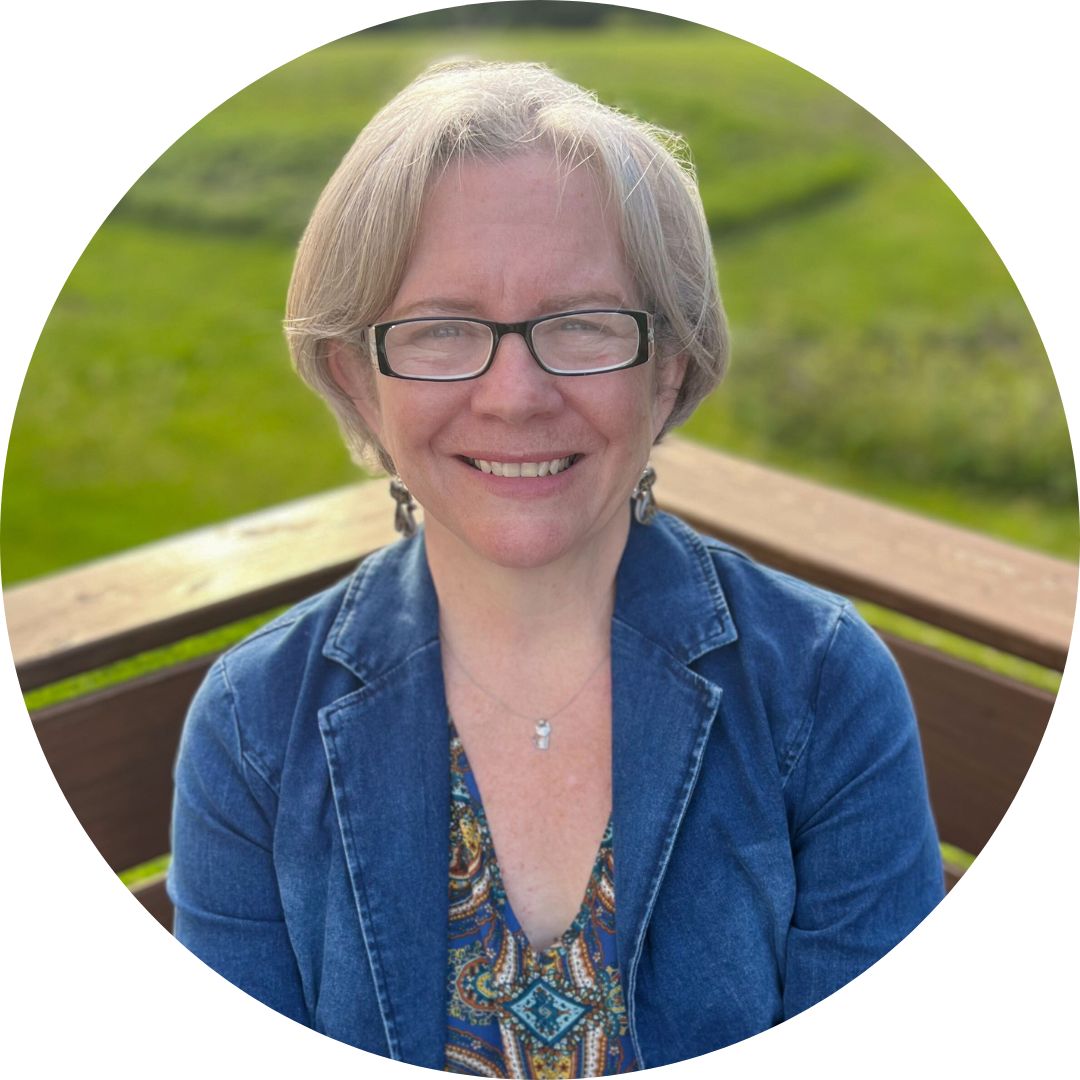 I struggle with the word “survivor”. Maybe it’s because I still don’t really feel like a survivor, six years post diagnosis. The word “survivor” implies I’ve 'made it through.' Six years later, however, I feel like I am still in it. I feel tremendous guilt that I don’t feel like a survivor, when many before me (my mom and brother included) would have given anything to be in my privileged position of surviving. Please don't misunderstand —I am filled with gratitude and take note every single day, even when completing the most disliked tasks. I am grateful because I know that if I were sick, I would give anything to do this task again.
I struggle with the word “survivor”. Maybe it’s because I still don’t really feel like a survivor, six years post diagnosis. The word “survivor” implies I’ve 'made it through.' Six years later, however, I feel like I am still in it. I feel tremendous guilt that I don’t feel like a survivor, when many before me (my mom and brother included) would have given anything to be in my privileged position of surviving. Please don't misunderstand —I am filled with gratitude and take note every single day, even when completing the most disliked tasks. I am grateful because I know that if I were sick, I would give anything to do this task again.
6. Why Stopping Cancer Treatment Can Be About Living, Not Dying
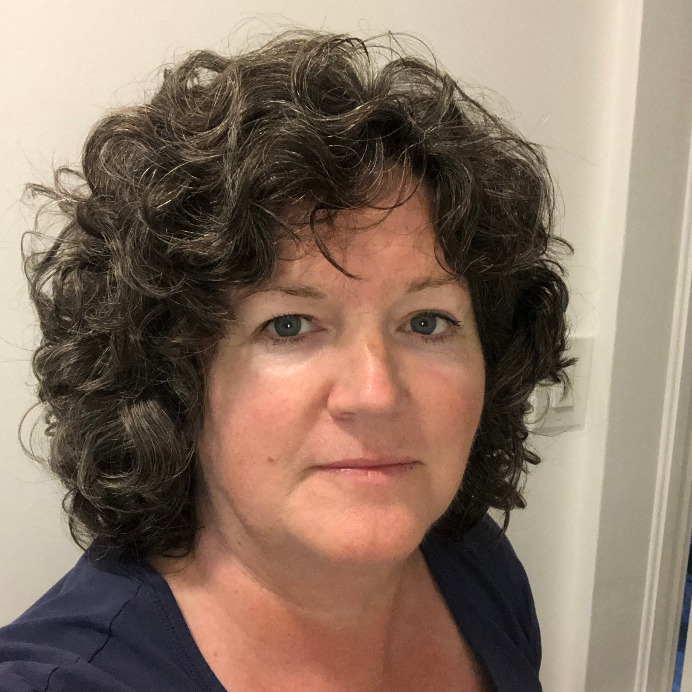 Firstly, I want to say that I am not sharing my story to encourage anyone to quit treatment. Please don’t! This is risky. I’m really rolling the dice here. I am choosing my quality of life over longevity. That’s not for everyone. I had been unable to tolerate any of the aromatase inhibitors (AI; a type of hormonal therapy used to lower estrogen levels to slow or stop cancer growth), so I felt I had little choice but to pursue other options.
Firstly, I want to say that I am not sharing my story to encourage anyone to quit treatment. Please don’t! This is risky. I’m really rolling the dice here. I am choosing my quality of life over longevity. That’s not for everyone. I had been unable to tolerate any of the aromatase inhibitors (AI; a type of hormonal therapy used to lower estrogen levels to slow or stop cancer growth), so I felt I had little choice but to pursue other options.
5. The Must-Know Info About Early-Stage Breast Cancer
 As I tried to process my diagnosis and what it meant for me, along with the future I’d envisioned for myself, I went into research mode. It’s my comfort zone. I’m curious by nature and profession (being a writer and all), and having information, knowing everything that I need to know, makes me feel in control. So, I dug deep, Googled like a crazed person, and asked my doctors hundreds of questions while I tried as best as I could to prepare myself for the unknown that was to come. Here’s what I learned about being diagnosed with early-stage breast cancer.
As I tried to process my diagnosis and what it meant for me, along with the future I’d envisioned for myself, I went into research mode. It’s my comfort zone. I’m curious by nature and profession (being a writer and all), and having information, knowing everything that I need to know, makes me feel in control. So, I dug deep, Googled like a crazed person, and asked my doctors hundreds of questions while I tried as best as I could to prepare myself for the unknown that was to come. Here’s what I learned about being diagnosed with early-stage breast cancer.
4. Advanced Breast Cancer 7th (ABC7) International Consensus Conference Round-Up
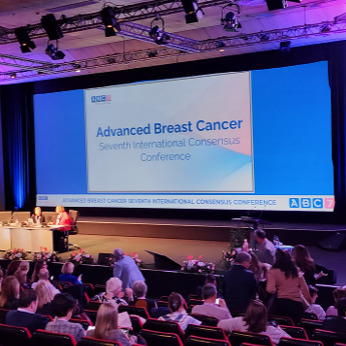 CBCN had the opportunity to attend the ABC7 conference in Lisbon, Portugal from November 9 to 11, 2023. Here are some highlights from the conference.
CBCN had the opportunity to attend the ABC7 conference in Lisbon, Portugal from November 9 to 11, 2023. Here are some highlights from the conference.
3. My Genomics Journey as a Breast Cancer Patient
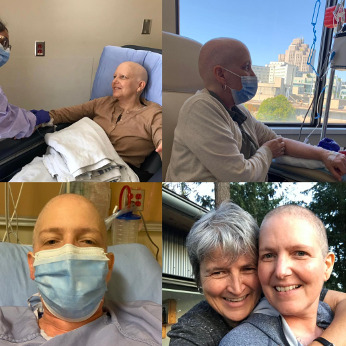 Today, I want to dive into the role genomics has played in my journey. As an MD specialized in genomics, this journey has been an eye-opener regarding the clinical implementation of genomics and the accessibility of genomic profiling for real patients in British Columbia, Canada, and beyond. There have been good surprises and also situations where I've directly faced barriers and limitations surrounding the clinical use and implementation of genomics.
Today, I want to dive into the role genomics has played in my journey. As an MD specialized in genomics, this journey has been an eye-opener regarding the clinical implementation of genomics and the accessibility of genomic profiling for real patients in British Columbia, Canada, and beyond. There have been good surprises and also situations where I've directly faced barriers and limitations surrounding the clinical use and implementation of genomics.
2. Can You Do the Tamoxifen Time?
 I’m a Tamoxifen fail. I quit taking the drug just shy of my five-year prescription’s halfway mark. The estrogen-blocking pill fried my short-term memory within the first 14 days and then, tormented me daily with its version of Jay-Z’s “99 Problems.” And lucky me. I experienced every single one of them.
I’m a Tamoxifen fail. I quit taking the drug just shy of my five-year prescription’s halfway mark. The estrogen-blocking pill fried my short-term memory within the first 14 days and then, tormented me daily with its version of Jay-Z’s “99 Problems.” And lucky me. I experienced every single one of them.
1. Navigating persistent pain after breast cancer surgery: Challenges and solutions
 Advances in the screening and management of breast cancer have resulted in substantial improvements for those diagnosed with the disease. Patients are living much longer after a breast cancer diagnosis, which is a major accomplishment of modern medicine. However, since patients are living longer, the complications associated with treatment (such as surgery, radiation, and chemotherapy) are becoming increasingly apparent. One such complication is the development of persistent pain in the area of breast cancer resection.
Advances in the screening and management of breast cancer have resulted in substantial improvements for those diagnosed with the disease. Patients are living much longer after a breast cancer diagnosis, which is a major accomplishment of modern medicine. However, since patients are living longer, the complications associated with treatment (such as surgery, radiation, and chemotherapy) are becoming increasingly apparent. One such complication is the development of persistent pain in the area of breast cancer resection.


